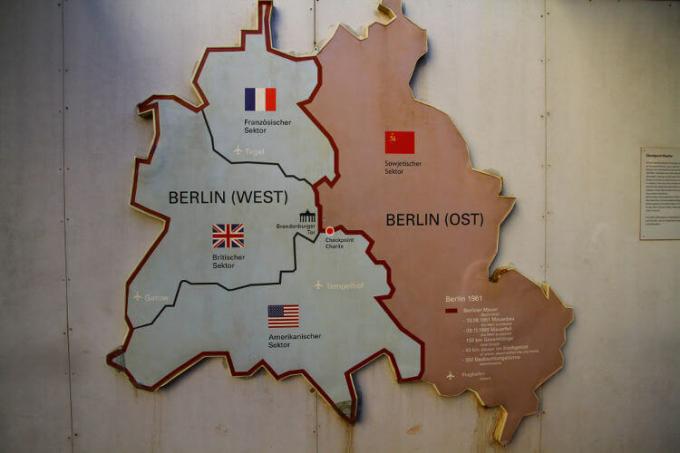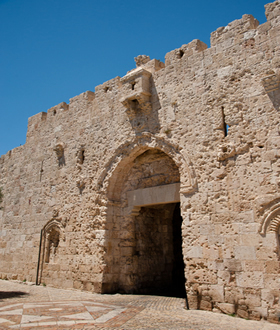Tsar-Bomb, RDS-220 thermonuclear bomb
Tsar Bomb was the name given to hydrogen bomb, or thermonuclear bomb, RDS 220, manufactured by the Soviet Union and tested on October 30, 1961. With an explosive potential corresponding to 57 megatons, that is, 57 megatons (million tons) of TNT (conventional dynamite), the Tsar Bomb it was the most powerful atomic bomb ever created. In order to better understand the impact produced by this bomb in the scientific and political spheres, it is necessary to remember the context in which it was created.
Context: Cold War and “Arms Race”
With the discovery of fissionnuclear, in 1939, and the subsequent use of this type of physical reaction in the composition of atomic bombs such as those dropped by the United States of America on the cities of Hiroshima and Nagasaki, in August 1945, the possibility of humanity's self-destruction became real. With the end of the war, the two spare superpowers, USA and USSR, started to invest massively in the production of nuclear weapons, as well as in research that could increase the power of the artifacts.
Therefore, the search for the bomb with the greatest destructive power set the tone for WarCold. The 1950s and 1960s were marked by this “arms race”, which led to the production of hydrogen bombs – hundreds of times more powerful than nuclear fission bombs.
Hydrogen bombs
The first hydrogen bomb built was the Mike, American-made. Mike was tested on November 1, 1952, at Enewetak Atoll, located in the Marshall Islands. Its explosive power was 10 megatons of power, the equivalent of about 700 uranium fission bombs like the one dropped on Hiroshima. Two years later, the US built another hydrogen bomb, dubbed the Castle Bravo. This bomb was detonated on March 1, 1954, on Bikini Atoll, in the Pacific Ocean and reached a power of 15 megatons.
Do not stop now... There's more after the advertising ;)
In 1955, on the 22nd of November, the Soviets tested their first hydrogen bomb, the RDS-37, of 1.6 megatons of power. The group of scientists and military men who started the USSR thermonuclear bomb program was led by the physicist Andrei Sakharov. It was this group that was responsible for carrying out the order of the Soviet leader NikitaKhrushchev, who wanted a bomb of 100 megatons of power.
However, a bomb of such magnitude would have a series of obstacles, starting with the weight of the capsule that would contain it. Furthermore, the risk of its detonation was immense, so the designers led by Sakharov had to reduce the power from 100 to 50 megatons.
explosion of Tsar-Bomb
On October 30, 1961, the most powerful model hydrogen bomb was tested in the archipelago of NewZembla, in the Arctic Ocean. The power of the explosion was greater than expected, reaching 57 megatons. The official name of the bomb model was RDS-37; it weighed 27 tons, had a diameter of 2 meters and a height of 8 meters. She was transported by a model plane Tu-95-202, specially equipped for this. The plane launched it with a parachute, so that it did not reach the ground before the expected moment. The explosion generated a radius of 35 kilometers of destruction, enough to instantly destroy a metropolis like São Paulo or Paris. Below, we can see the timing of the detonation of the Tsar Bomb. The mushroom cloud, as the video highlights, reached 60 kilometers in height:
The name "Tsar Bomb" is a reference to the Russian tsar (or tsar) Ivan the Terrible, who lived in the 16th century. Hence, another name that was given was “Ivan”.
*Image credits: Shuttersock and Pictures
By Me. Cláudio Fernandes


